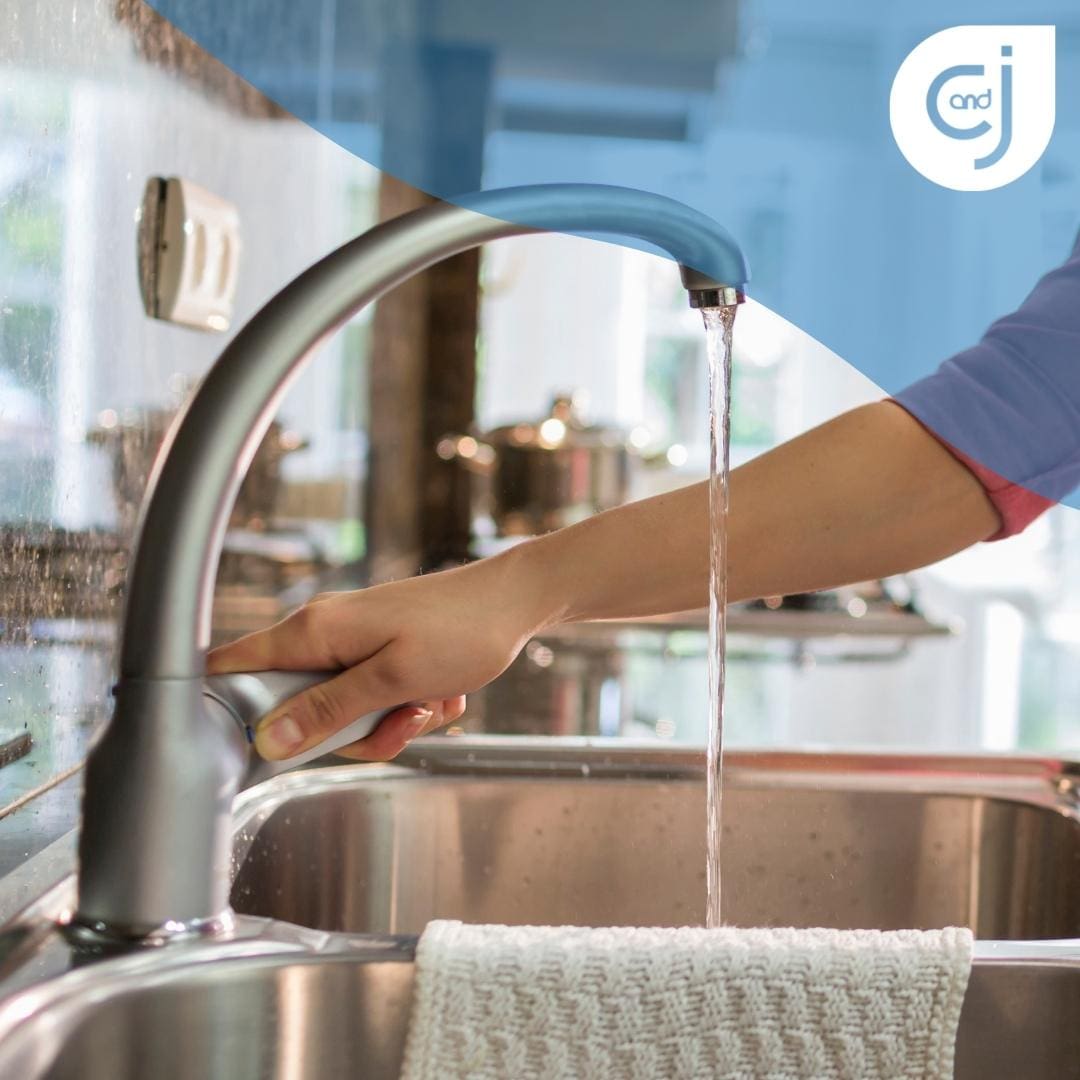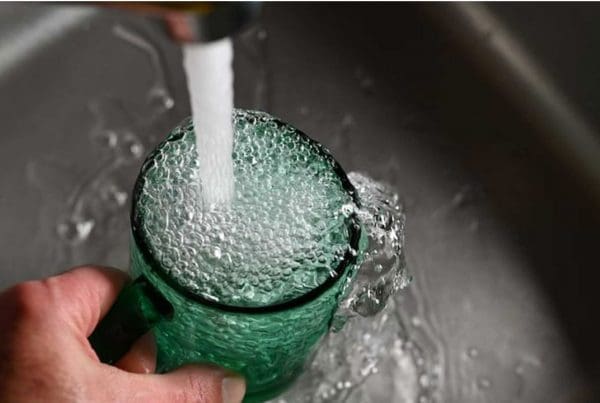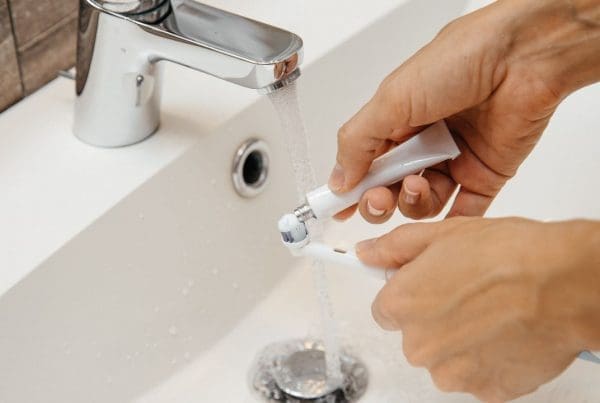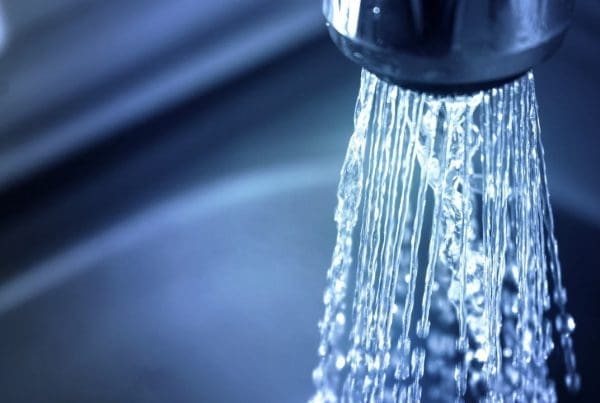Hard Water Problems: What You Should Know
If you own a home in Central Indiana, you probably have experienced the adverse effects of hard water. Indiana has notoriously hard water, and sometimes we can get used to it. Hard water can cause several issues around your house, and we will address some of them in this post.
What is Hard Water?
The simple definition of water hardness is the amount of dissolved calcium and magnesium in the water. Hard water is high in dissolved minerals, primarily calcium and magnesium. Water that percolates through deposits of limestone, gypsum, or chalk would tend to end up with higher concentrations of calcium and magnesium compounds, causing it to become hard water.
 You may have felt the effects of hard water the last time you washed your hands. Depending on the hardness of your water, after using soap to clean, you may have felt like there was a film of residue left on your hands. Soap reacts with the calcium (which is relatively high in hard water) to form “soap scum” in hard water. When using hard water, more soap or detergent is needed to get things clean, whether your hands, hair, or laundry.
You may have felt the effects of hard water the last time you washed your hands. Depending on the hardness of your water, after using soap to clean, you may have felt like there was a film of residue left on your hands. Soap reacts with the calcium (which is relatively high in hard water) to form “soap scum” in hard water. When using hard water, more soap or detergent is needed to get things clean, whether your hands, hair, or laundry.
General guidelines for classification of waters are 0 to 60 mg/L (milligrams per liter) as calcium carbonate is classified as soft; 61 to 120 mg/L as moderately hard; 121 to 180 mg/L as hard; and more than 180 mg/L as very hard.
Soap Scum
Beyond being unsightly, what is soap scum, and how does it get all over our clean bathroom surfaces? Soap scum can be found on shower curtains, bathroom fixtures, bathtubs, shower doors, tiling, and more. Limescale is often mistaken for soap scum. Though similar, limescale is a hard, off-white, chalky deposit typically found in kettles, hot water boilers, and central heating systems. Soap scum is formed into a solid substance when soap is used in hard water. On a scientific level, soap scum combines calcium and magnesium particles (ions) in the water with the soap, which forms into the soap scum substance. This formation is frequently caused by minerals in tap water that combine with soap and dirt to create a layer of scaliness over the surfaces in our bathrooms and sometimes even our laundry.
Homes with mineral-filled hard water are much more likely to have soap scum buildup, which can be difficult to remove if left for too long, as soap scum continues to build up each time the area around it is used. Soap scum that is left alone and allowed to build up can combine with mold or mildew and have other discolorations and odors—and can even get as hard as concrete, making it more difficult to remove.
Drab Laundry
Are your clothes, sheets, and towels dingy, or do they feel harsh to the skin? Do you have powdery residue left on clean clothes? The problem could be the water you are using to wash clothes. The issues you encounter in your laundry efforts can’t always be blamed on the washer. Dull-looking clothes are caused by using hard water that contains excessive minerals. If the water supply for your washer provides hard water, you will need to use a water conditioner to protect your clothes and help your detergent work efficiently.
Furthermore, yellowed whites are caused by too much iron in the water supply. Iron bacteria in your water supply will settle on clothes and cause them to be yellow or eventually turn brown.
Clogged Pipes
Mineral deposits from hard water are often responsible for clogging pipes. When hard water is heated, a certain amount of water evaporates, causing the minerals suspended in it to precipitate. This solidified scale can accumulate inside your pipes, water heater, washing machine, and dishwasher.
These accumulations can cause significant troubles throughout your plumbing system, from low water pressure to the failure of certain appliances. Furthermore, some types of plumbing are more susceptible to hard water clogging than others. While copper, PVC, and PEX pipes are more resistant to hard water buildup and corrosion, they can still get clogged or entirely blocked by scale deposits.
 Skin Irritation
Skin Irritation
Simply bathing in hard water may cause redness and dry skin. The calcium settles on your skin and changes one’s oil chemistry, which compromises the skin’s ability to moisturize itself. It also leads to large pores, acne, rashes, itching, and rosacea. The buildup can also cause nails and hair to become weaker and more brittle.
The minerals found in hard water make it difficult for soap to do its most essential job—clean your skin of dirt, oils, and residue from the day. When these minerals build up, they block soap’s ability to bind water and grim to wash away dirt, creating soap scum. The result? Irritated, dried-out skin that can crack, peel or even bleed over time. And if that wasn’t bad enough, soap scum can leave behind a film on your skin that may compromise your skin’s protection from germs.
Reduced Appliance Lifespan
Appliances that use water, such as the dishwasher, washing machine, or ice maker, won’t last as long in a house with hard water as they would in a home with soft water. Mineral deposits can block small water supply lines, narrow drain lines, and build upon internal components, reducing an appliance’s effectiveness and lifespan.
Hard water can impact your home’s water heater. On average, a water heater lasts 8 to 10 years, but hard water can shorten its life to a few years, depending on the number of minerals. Limescale forms on the heating element, encasing it and reducing its ability to heat the water. Mineral deposits settle at the bottom of the tank, decreasing the amount of available hot water.
What should you do about hard water?
The good news is the WQA specialists at C and J Water have several solutions for hard water. The best option to mitigate hard water is a saltwater softener that uses ion exchange to make the water soft. If you are ready to improve the water quality in your home or just have more questions, contact us today!


 Skin Irritation
Skin Irritation

